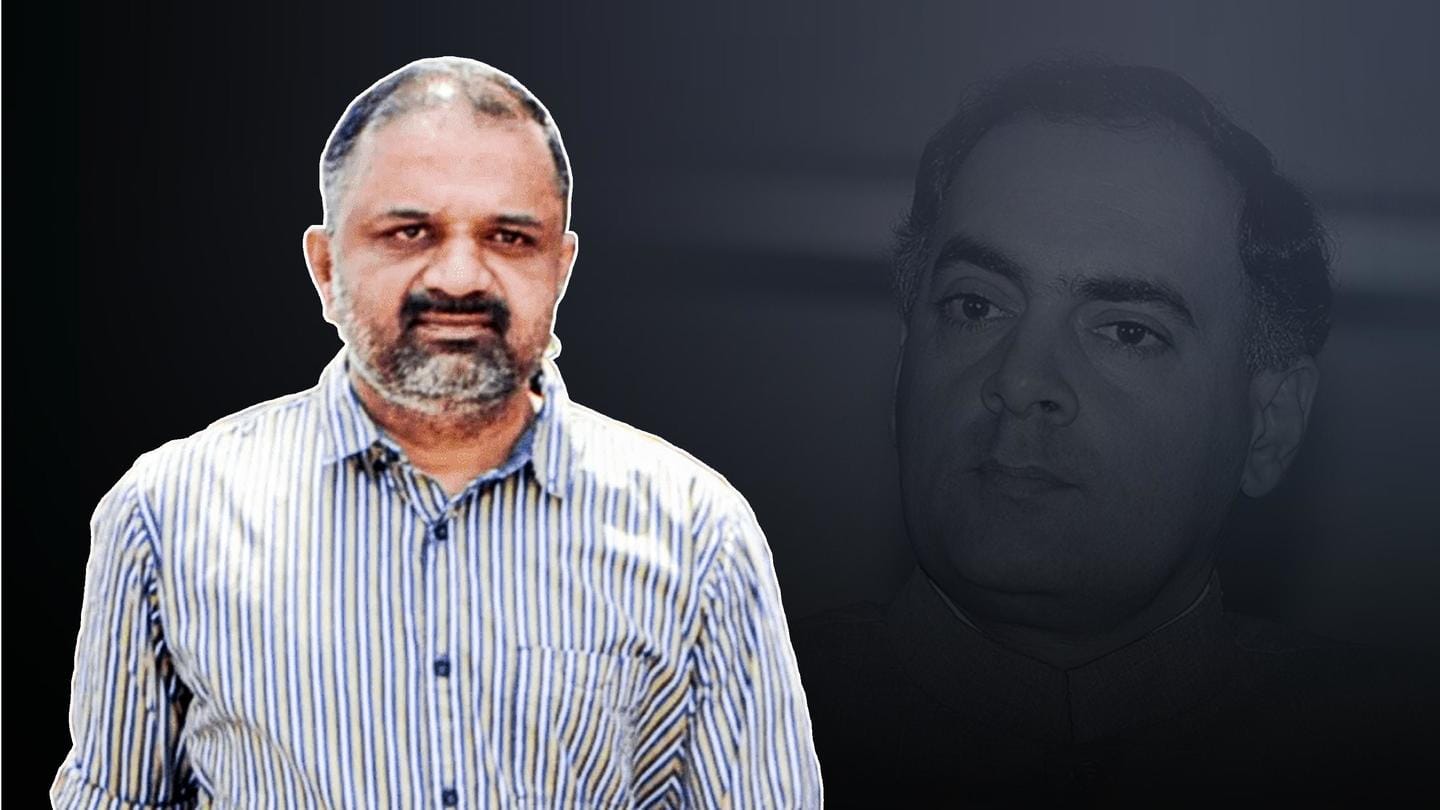
Rajiv Gandhi assassination case: SC orders Perarivalan's release
What's the story
The Supreme Court on Wednesday ordered release of AG Perarivalan, a life-term convict, who served over 30 years in the former Prime Minister Rajiv Gandhi's assassination case. A bench headed by Justice L Nageswara Rao invoked the extraordinary power under Article 142 to release Perarivalan. On March 9, the SC had granted him bail while taking note of his long incarceration and good conduct.
Context
Why does this story matter?
The verdict could pave the way for release of the other six convicts in the case, including Nalini Sriharan and her husband Murugan, a Sri Lankan national. The Tamil Nadu government had in March decided to remit the sentences of all the seven convicts and release them. However, the Centre had rejected the proposal. Since then, the matter was pending in the Supreme Court.
19-year-old
Accused of buying two 9-volt batteries used in assassination
Perarivalan was 19-year-old at the time of Rajiv Gandhi's assassination. He was accused of buying the two 9-volt batteries for Liberation Tigers of Tamil Eelam (LTTE)'s Sivarasan, who masterminded the criminal act. The batteries were used in the bomb to assassinate Gandhi. Perarivalan had claimed all along that he wasn't aware of the purpose of the batteries.
Background
Seven were convicted for assassination
Gandhi was assassinated by a suicide bomber at Sriperumbudur on May 21, 1991. Seven persons, Murugan, Santhan, Perarivalan, Nalini, Robert, Jayakumar, and Ravichandran, were convicted. Nalini's death sentence was commuted to life in the year 2000 following Sonia Gandhi's intervention, as she had given birth while in jail. In 2014, the SC had commuted Murugan, Santhan, and Perarivalan's death sentences to life terms.
Details
Perarivalan filed mercy plea before governor in December 2015
Perarivalan had filed mercy plea before then Tamil Nadu Governor Konijeti Rosaiah in December 2015 under Article 161 of the Constitution, which deals with the remission powers of the governor. The governor had referred the remission plea to President Ram Nath Kovind, despite the state government's recommendation to release him. The Centre had supported the governor's decision to refer the matter to the president.
Observation
SC first granted bail on March 9
Subsequently, the SC granted bail to Perarivalan on March 9. Noting that Perarivalan's case kept shuttling between the governor and the president, the SC had on May 11 reserved its verdict on his plea seeking premature release from jail. The SC questioned the delay and asked "will it not go against the federal structure" if the governor referred all such matters to the president.
Family emotional
My 31 years in prison is the message: Perarivalan
After the Supreme Court order, Perarivalan said, "For the past 31 years, only the legal fight was in our minds. I have been released only today. I have to breathe now. I will discuss with my family about my future." "My 31 years in prison is the message," he added. His father Kuildasan, mother Arputhammal, and sister Anbumani hailed the apex court's decision.
'Complete justice'
What is Article 142 of the Constitution?
The Supreme Court, every once in a while, invokes Article 142 which provides it with unique and extraordinary powers to do 'complete justice' in cases pending before it. "The Supreme Court in the exercise of its jurisdiction may pass such a decree or make such order as is necessary for doing complete justice in any cause or matter pending before it," the Article states.
History
Other cases when Article 142 was invoked
In the past, the SC had invoked Article 142 in the Ayodhya Ram Janmabhoomi-Babri Masjid land dispute case. It was also invoked to award compensation to Bhopal Gas Tragedy victims, and to order a probe into the 2013 Indian Premier League spot-fixing scandal, among others. In 2014, this provision was used to cancel the allocation of coal blocks granted from 1993 onwards, among others.